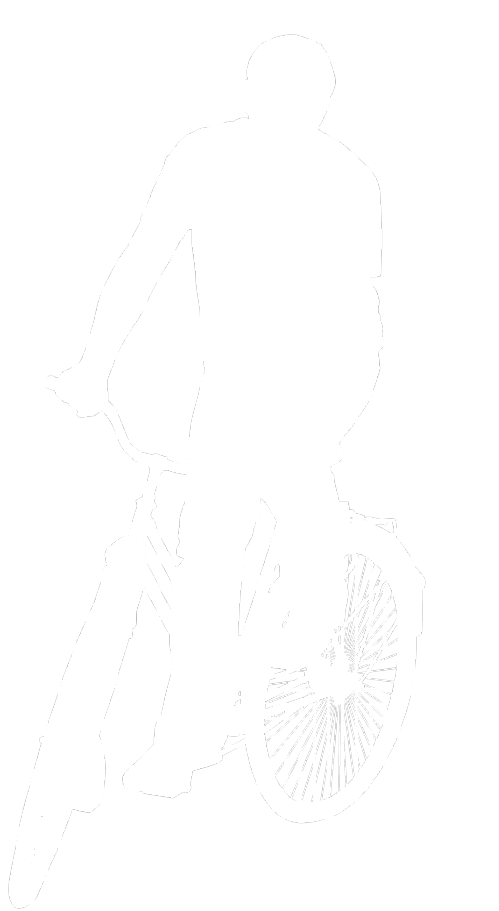|
|
Speed LearningSpeed Learning provides a fast-moving discussion platform for knowledge-sharing and helps teams to network. The 20 case studies will be presented simultaneously at ‘bar tables’ marked by numbers, in 15 minute sessions (14 minutes for presentation and interactive discussion, and 1 minute for changing tables). The case studies will consist of short presentations followed by discussion. A horn will be sounded when it is time to change to another table. |
||
1 |
2 |
3 |
||||
Mini Holland project, London Borough of EnfieldRichard Eason, Programme Director, Enfield Council The London Borough of Enfield have an ambitious plan to transform the level of cycling through their ‘mini Holland’ programme. Infrastructure is crucial to help increase cycling, but it isn’t the only thing. The Cycle Enfield programme has developed a holistic strategy to deliver the behaviour change they’re seeking. Come and discuss the elements we should all consider to enable change. |
Designing for cycling to workLesley McAllister, Travel Choices Manager, Transport for Warrington Omega is one of the largest mixed-use development sites in the north-west of England. Using detailed guidance written into supplementary planning documents and careful scrutiny of planning applications, Transport for Warrington has been able to ensure high quality cycle parking and routes were built into each business and the wider development. The outcome has been a significantly higher-than-average cycling culture, especially significant considering the geographical location and overnight shift changeovers and abundance of car parking.
|
Walking and cycling in SouthwarkHugh McCarthy, Senior Consultant, Aecom This session will look at Southwark’s work on delivering cycling and walking schemes, including Quietways 1, 7 and 14, while also delivering 20mph schemes, bus priority and road safety initiatives. Southwark was awarded the Transport Borough of the Year award at the London Transport Awards.
|
||||
4 |
5 |
6 |
||||
Turbo roundabouts: the data three years onPartick Lingwood, Walking & Cycling Officer, Bedford Borough Council Bedford now has more than three years of data from the opening of the first – and rather controversial – turbo-style roundabout in Britain, relating to traffic flows, traffic speeds, pedestrian and cyclist crossing data, as well as safety data and cyclist surveys. It is now possible to evaluate the benefits of this innovative design in terms of promoting safe cycling and walking. |
Near-miss reportingJames Luckman, Road Safety and Active Travel Manager, Portsmouth City Council Portsmouth's ambition is to lead the country in recording 'near miss' incidents for cyclists. 'Near miss' is currently being trialled for a period of six months starting in March 2018. Reporting is completed via an online reporting form. An evaluation of the trial will determine the future scoping of 'near miss' reporting and, potentially, the capture near misses from all road users. The information collated will be used to support informed decision-making for scheme prioritisation, transport priorities and behavioural change initiatives.
|
Mini Holland Waltham Forestwhat if:projects team How can a crowded, polluted, and often grid-locked city like London persuade people to get on their bikes? A pioneering piece of joined up thinking from what if: projects and the London Borough of Waltham Forest shows the way. |
||||
7 |
8 |
9 |
||||
A social marketing masterclass: why do you need it to promote cycling?Tim Steiner, Associate, Systra Social marketing is an approach used to develop activities aimed at changing or maintaining people’s behaviour for the benefit of individuals and society as a whole. It informs people about new choices and encourages them to use them. Its effectiveness in delivering transport change is proven, as witnessed by the societal changes surrounding drink-driving and seatbelt-wearing
|
Accessible tourism: creating an inclusive destinationJane Cooper & Gillian Scotford, Co-founders, Access For All UK This session will focus on the many accessible opportunities which exist for disabled people in Derbyshire and the Peak District, including accessible bikes, all-terrain wheelchairs, accessible 'wheelyboats', wheelchair abseiling, accessible zip wire and much more, as well as the infrastructure that makes these experiences possible.
|
Cycling for health: a remedy for successLaura Hales, Head of Development, England, Cycling UK, and Katie Edmondson, CCAG Communications and Engagement Lead, West Yorkshire Combined Authority / City Connect If you found a cure for social isolation, lack of confidence and ill-health, which also improved air quality, reduced congestion, and created healthy streets, you’d be wise to patent it. This seminar will explore this very cure: CityConnect and Cycling UK’s Cycle for Health programme which works with inactive people to address physical and mental health and offer realistic transport choices. Now in its third year, the partnership between CityConnect and Cycling UK has seen the two organisations use community cycling as a way of increasing participation and diversity which is helping to shape local authority decision making in West Yorkshire. |
||||
10 |
11 |
12 |
||||
Healthy Streets SensorsTom Bailey, Director, Almere Technology Our 2018 Healthy Street Sensors are helping to deliver people-centric places by deploying pedestrian and cyclist detection hardware in Newcastle. Reliable, evidence based data on flows provides understanding of how people use spaces and places, and enables the design process to be based on actual user insights. Almere Technology delivers sustainable development solutions, built environment consulting & technology insights, and is based in Newcastle-Upon-Tyne. |
Wheels of Wellness: cycling and healthFleur Ammerlaan, Project Director, Love to Ride Wheels of Wellness is a global study on the physical & mental health benefits of increased levels of cycling. Love to Ride draws on survey data from its cycling encouragement programmes around the world, to determine the benefits of a year-round engagement programme and its impact on cycling behaviour and health.
|
E-biking for health and independenceBen Spencer, Research Fellow, Oxford Brookes University E-biking offers the potential to overcome some challenges of pedal cycling, for example, distance and topography. But it can also make important contributions to promoting health through everyday exercise, and promote wellbeing through enhancing independence and social connectedness. Ben will share findings from two recent studies on the experience of new and established e-bike users in the United Kingdom and the Netherlands to demonstrate the health and wellbeing benefits of e-cycling. Key issues will be highlighted that prevent e-biking reaching its full potential, and recommendations will be provided on how policies and measures could support e-biking as part of a broader healthy urban mobility strategy. |
||||
13 |
14 |
15 |
||||
Cycling measures from Ghent & Karlsruhe: what potential for the UK?Keith Morgan, Principal Transport Planner, Nottingham City Council |
Cycle friendly Campus internship programmeValentin Jeanjean, Development Officer, Campus, Transport Scotland Cycling Scotland's Graduate placement scheme is collaborative in nature and enables, supports and provides Higher and Further Education establishments to promote cycling as a healthy and sustainable travel choice. Facilitated by Transport Scotland, Cycling Scotland fund the internship programme, supported by the Environmental Association for Colleges & Universities and administered via Bright Green Business |
Side road entry treatments in Nottingham: cyclist priorityJohn Bann, Cycling and Roadspace Transformation Manager, Nottingham City Council In 2015 the Leader of the Council challenged the cycling team to give cyclists priority where routes crossed side roads. The design, delivery and outcomes will be outlined, including the Ring Road shared path; the first cycle superhighway in the Midlands; and the recently opened segregated Eastern Cycle Corridor. See the video here |
||||
16 |
17 |
18 |
||||
Low Traffic NeighbourhoodsJenny Wiles, Regional Director (North), Living Streets The Low Traffic Neighbourhoods approach shows how the places where we live can be made happier and healthier by taking a few simple steps.
|
10 years wiser? Lessons from the bike user group of the UK’s biggest universityJulia Durkan, Sustainable Campus Officer & Geoff Blunt, Technical Operations Manager & UMBUG member, The University of Manchester The University of Manchester Bicycle Users’ Group (UMBUG) is a thriving community of cyclists that has been supporting and advocating cycling to work for more than 10 years. We will look at UMBUG’s journey over the past decade, highlighting achievements and exploring some of the lessons learned to help others start and grow successful organisational bike user groups. |
A ballet-dancing rhino: how a creative hook can entice new audiencesNatalie Ralph, Senior Account Manager, Diva Creative Diva Creative and CityConnect recently used target audience testing to develop a cycling campaign – that featured no bikes. This session will demonstrate how user testing and insights can uncover a creative hook that appeals to new audiences with online and offline engagement. |
||||
19 |
20 |
21 |
||||
Spotlight on pavements, kerbs & controlled crossingsSarah Gayton, Shared Space Coordinator & Karl Farrell, Transport Representative, London, National Federation of the Blind of the UK This session will focus on the importance of the safety and navigational features of pavements, kerbs and controlled crossings for the independent mobility of blind, partially sighted and deaf-blind pedestrians, as well as other pedestrians who need to be able to access town and city centres. It will focus on the importance of these features to ensure the independent mobility of blind people can be retained during changes to streets, roads and public realm areas, and will highlight problems blind people have experienced. We welcome cooperation and conversation at our session, and the building of contacts for future collaboration. |
Operation Snap: taking action on close-passingRobert Davis, Chair, Road Danger Reduction Forum Policing the close-passing of cyclists was started by West Midlands Police in 2017. It related to the main causes of cyclists being KSI, but was also importnat because the close-passing act itself should be stigmatised as dangerous to cyclists. For positive effect, close-pssing policing has to be linked with social media for publicity (done well by Surrey Roads Police) and third party reporting (most advanced with Operation Snap in Autumn 2017) and charges under S.3 RTA 1988. This year, at least eight police forces are carrying out versions of this policy, yet only West Midlands Police Road Harm Reduction Team is pushing through charges. This talk will explore the potential of pursuing this policy effectively. |
Visualisation of cycling data for better insight and analysisChristopher Bristow With 88% of the UK having a smart phone, there is a massive increase in the data being captured about how we cycle and walk around our towns and cites. Yet how do local authorities and other stakeholders use this data to gain insight into active mobility, and draw on it for modelling and analysis? BetterPoints will present an EU project called Smart Mobility Analysis as Service Hub (SMASH), which is designed to graphically visualise GPS journey logs and other data sets generated by apps like Strava and BetterPoints. Built on Open Street Map, SMASH allows users to dynamically interrogate cycling data in an easy-to-use web service.
|
||||
22 |
||
The experience of people new or returning to commuter cyclingEd Plowden Head of Local and Sustainable transport, Bristol City Council A qualitative research project investigated the real life experience of people who borrowed a loan bike for a month from Bristol City Council to “try before they buy”. All of them used it for commuting. Participants were interviewed as or after they returned the bike and the resulting learning has implications for transport and health professionals. |
||
|
|||||||
Speed Learning

Supported by:
Hosted by:


University Place, Manchester
28-29 June 2018

Organised by:
Sponsored by:




